
Dear Jeremy from 1999,
Don’t freak out, but this is a letter from you fifteen years into the future (2014). Yeah, we developed a fancy time-warp email system so that I can send letters back to myself. Pretty cool, huh? Just wait until you see Google glass. Well, never mind about that. Maybe that’s not so cool …
Anyway, I wanted to write to you to tell you a few things that I wish I knew when I was you. Here they are:
1. Sell your stocks. A crash is coming. Enough said.
2. Grow your hair out. You look like a Christian dweeb.
3. That whole Y2K thing? Don’t sweat it. It was all a bunch of hype. Nothing happened. Absolutely nothing.
4. The world’s going to change on 9-11-2001. Be ready with a message of hope, love, forgiveness, and healing.
5. Finally, and most importantly (you can ignore the first four items, but don’t ignore this one), put down your damn theology books and go kiss your beautiful wife. And I don’t mean a little peck on the cheek, I mean a good, long, passionate kiss.
Theology can wait. Starting your marriage off right with your wife will not. You can never get those years back again, and my biggest regret from the years you are now living is that I spent most of that time with my nose buried in books instead of in her neck.
You will get through seminary with no problem and the grades you get will not matter. So remove your fingers from that computer keyboard, and go put them on your wife instead.
Are you listening to me? Don’t make me come back there!
Oh.. wait… what’s this? A letter from myself fifteen years in the future just arrived in my inbox. Hmmm. Let’s see what I have to say to the me of today.
Oh… oops.
It looks like the me of 15 years from now is saying the same thing the me of today is saying to the me of 15 years ago….
Point taken… Now where’s my wife?
How About You?
If you could say something to yourself 10-20 years ago, what would it be? Share in the comments below…
This post is part of the May 2014 Synchroblog. Here is a list of the other bloggers who participated:
- Justin Steckbauer – What Do You Wish You Knew 10 or 20 years ago?
- Michael Donahoe – What I Wish I had Known
- Mary – What I Wish I Would Have Known as a Newlywed
- Heather Wheat – As a Young Mother, I Wish I Had Known…
- Michelle – Ten Years of Wisdom
- Michelle – Twenty Years of Wisdom
- Wesley Rostoll – If I Could Speak to a Younger Version of Me
- Peggy – From Peggy … To Peggy
- Glenn Hager – The Reluctant Time Lord
- Paul Metler – A Note to my 20 Year Ago Self
- Carol Kuniholm – Life Lessons from Lydia
- Edwin Adrich – A Note to My Younger Self
- Liz Dyer – Dear Me
- Kathy Escobar – Never Say Never
- Kimberly Klein – Be Free, Be You



 When people seek to defend the idea that God is violent “because the Bible says so,” what they are really doing is allowing the violent portrayals of God in the Bible to override and trump the loving and merciful portrayals of God elsewhere in Scripture, even when both portrayals are talking about the same historical event.
When people seek to defend the idea that God is violent “because the Bible says so,” what they are really doing is allowing the violent portrayals of God in the Bible to override and trump the loving and merciful portrayals of God elsewhere in Scripture, even when both portrayals are talking about the same historical event. If a basic rule of hermeneutics is that the simpler and clearer texts should override the more difficult and troubling texts, and if Jesus Christ is the image of the invisible God so that He can say “if you have seen Me, you have seen the Father,” why do we choose to let the more troubling, difficult, and violent texts override and trump the loving, merciful, and Christlike texts?
If a basic rule of hermeneutics is that the simpler and clearer texts should override the more difficult and troubling texts, and if Jesus Christ is the image of the invisible God so that He can say “if you have seen Me, you have seen the Father,” why do we choose to let the more troubling, difficult, and violent texts override and trump the loving, merciful, and Christlike texts? How can a God who says "Love your enemies" (Matthew 5:44) be the same God who instructs His people in the Old Testament to kill their enemies?
How can a God who says "Love your enemies" (Matthew 5:44) be the same God who instructs His people in the Old Testament to kill their enemies?

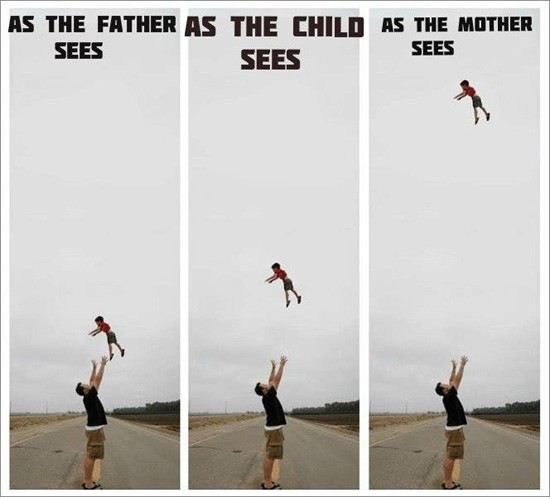

 We are looking at 4 reasons the Bible is unique. Here is a brief summary of where we have been so far:
We are looking at 4 reasons the Bible is unique. Here is a brief summary of where we have been so far: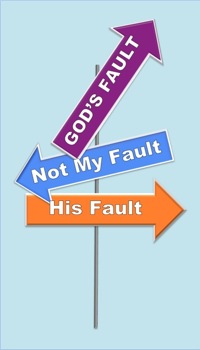 When we are violent, we make God the scapegoat for our violence. We learned this practice from the father and mother of humanity, Adam and Eve. After they ate the forbidden fruit in the Garden of Eden, Adam blamed Eve, and Eve blamed the serpent, but both inferred blame upon God. In blaming Eve, Adam said “the woman whom You gave to be with me, she gave me of the tree, and I ate” (Gen 3:12). Adam implies that if God had not given the woman to him, Adam never would have sinned. It was God’s fault. Eve’s attempt to blame God is not so obvious, but in blaming the serpent, it seems that she implies that if the serpent had not been in God’s Garden (for didn’t God create all the animals?), or if God had given to Eve the same instructions He had given to Adam (for didn’t God only give His instructions about the forbidden fruit to Adam?) Eve would not have been deceived.
When we are violent, we make God the scapegoat for our violence. We learned this practice from the father and mother of humanity, Adam and Eve. After they ate the forbidden fruit in the Garden of Eden, Adam blamed Eve, and Eve blamed the serpent, but both inferred blame upon God. In blaming Eve, Adam said “the woman whom You gave to be with me, she gave me of the tree, and I ate” (Gen 3:12). Adam implies that if God had not given the woman to him, Adam never would have sinned. It was God’s fault. Eve’s attempt to blame God is not so obvious, but in blaming the serpent, it seems that she implies that if the serpent had not been in God’s Garden (for didn’t God create all the animals?), or if God had given to Eve the same instructions He had given to Adam (for didn’t God only give His instructions about the forbidden fruit to Adam?) Eve would not have been deceived.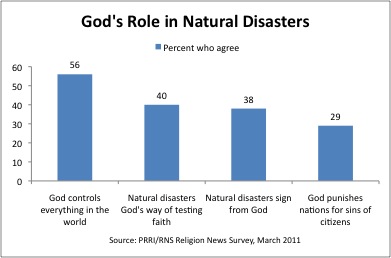


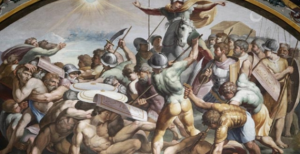 And yet, there is a deep truth here we must not miss. I ended the
And yet, there is a deep truth here we must not miss. I ended the  Though we may not always understand why and how sin and suffering enters into God’s world, one thing we can know through the crucifixion of Jesus is that God does not send sin and suffering, but rather, is a victim of it along with us.
Though we may not always understand why and how sin and suffering enters into God’s world, one thing we can know through the crucifixion of Jesus is that God does not send sin and suffering, but rather, is a victim of it along with us. 
 The second reason the Hebrew Scriptures can be considered unique is that they are the writings which Jesus explicitly claimed to fulfill and which He said pointed to Him (John 5:39-40). The Hebrew Scriptures not only contain prophecy about Jesus, but all the stories, hopes, and longings contained within the Old Testament also find their fulfillment in the person and work of Jesus Christ.
The second reason the Hebrew Scriptures can be considered unique is that they are the writings which Jesus explicitly claimed to fulfill and which He said pointed to Him (John 5:39-40). The Hebrew Scriptures not only contain prophecy about Jesus, but all the stories, hopes, and longings contained within the Old Testament also find their fulfillment in the person and work of Jesus Christ.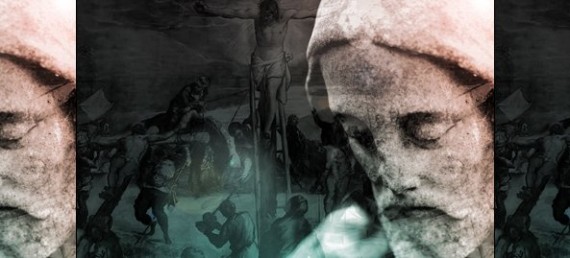
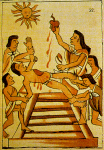
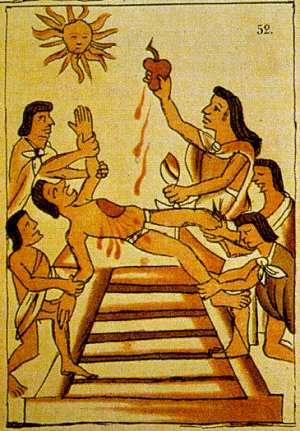 In his books,
In his books,  When God does finally reveal Himself in the person and work of Jesus Christ, the pinnacle and apex of this revelation is seen on the cross where Jesus takes the sin of the world upon Himself and dies as a criminal for all to see.
When God does finally reveal Himself in the person and work of Jesus Christ, the pinnacle and apex of this revelation is seen on the cross where Jesus takes the sin of the world upon Himself and dies as a criminal for all to see. 

 Quite likely, many of these people saw that creation was red with tooth and claw and wondered what kind of deity would create such a place. Many of them, seeing the love and care that family members often showed for each other, wondered what such relational love among human taught us about the God who created humans. Many of them, looking at the innumerable stars, wondered about the power and glory of the God who created such beauty.
Quite likely, many of these people saw that creation was red with tooth and claw and wondered what kind of deity would create such a place. Many of them, seeing the love and care that family members often showed for each other, wondered what such relational love among human taught us about the God who created humans. Many of them, looking at the innumerable stars, wondered about the power and glory of the God who created such beauty. 


 In case you missed it earlier this week, my newest book has been released, and you can
In case you missed it earlier this week, my newest book has been released, and you can 